The next inter-Burundian dialogue presents many faces of national consultations led by the CNDD-FDD regime. The dialogue, one of the demands of the international community, would credit the third term of Pierre Nkurunziza. By Abbas Mbazumutima, Edouard Madirisha and Christian Bigirimana translated by Diane Uwimana
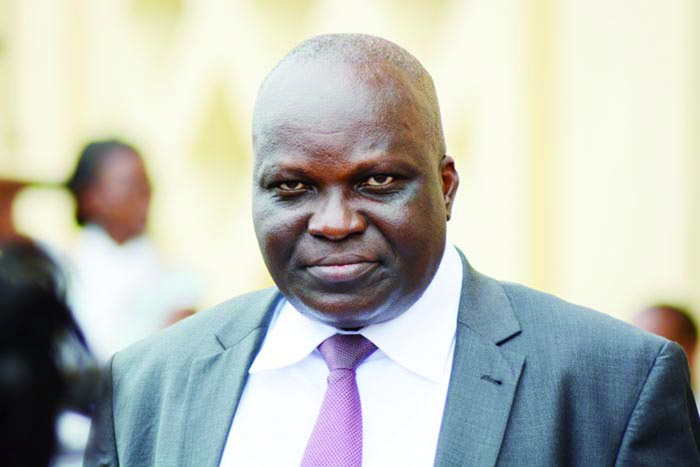
Pascal Nyabenda:” whoever wants to take part in the dialogue s welcomed and i think that it will be held in Burundi.” @iwacu
“There will be an inter-Burundian dialogue and it will affect everyone, the whole population. Everyone is invited,” announced Pascal Nyabenda, the speaker of the National Assembly and President of the CNDD-FDD. “But justice will be done. Whoever was involved in the failed coup will have to face justice.”
From the outset, Pascal Nyabenda announces the kind of the dialogue will be because he already eliminates those he calls the perpetrators of the coup. “Do not talk to opponents. Rather use the term ”perpetrators of the coup” (…) the people involved in the organization and implementation of the coup. These will not be included in the dialogue. On this point, we must be clear!”
Note that Pascal Nyabenda talks about a dialogue between “all Burundians without taking sides,” while a dialogue pre-supposes two parties. “It is very important to mention that there is no war in Burundi where it is necessary to separate the camps, because we have common problems. And dialogue should succeed. But that doesn’t mean to satisfy anyone who wants to defend his own interests.”
According to Nyabenda, the dialogue seems to rule out some Burundians, even if he says that all are invited. “It is an inter Burundian dialogue and I do not think that Burundians who are outside the country outnumber those inside. Whoever would come peacefully is welcome to the dialogue that will take place in Burundi.”
An unmediated dialogue in Burundi
The spokesman of the CNDD-FDD is very clear on the topic of mediation. For Gélase Ndabirabe, this dialogue between Burundians does not need a mediator or facilitator from abroad.
This inter-Burundian dialogue will therefore be a CNDD-FDD affair, since it is completely contrary to the demands of the opposition, including those gathered in CNARED- the National Council for the respect of the Arusha Agreement and restoration of the rule of law in Burundi-.
“Many opposition leaders are already in exile. They will certainly take part in future negotiations. For them to participate safely in future negotiations, they must take place outside of Burundi. A warden cannot converse with his prisoner,” said Leonard Nyangoma, the chairman of CNARED. Even though CNARED doesn’t precise, it is clear that it is also for outside mediation in the dialogue with the Bujumbura regime.
Bujumbura rejects the call of the Catholic bishops in dialogue
It is official; the Burundian government announced Wednesday September 23 that it will not accede to the request of the Conference of Catholic Bishops of Burundi for a “dialogue that excludes no one.”
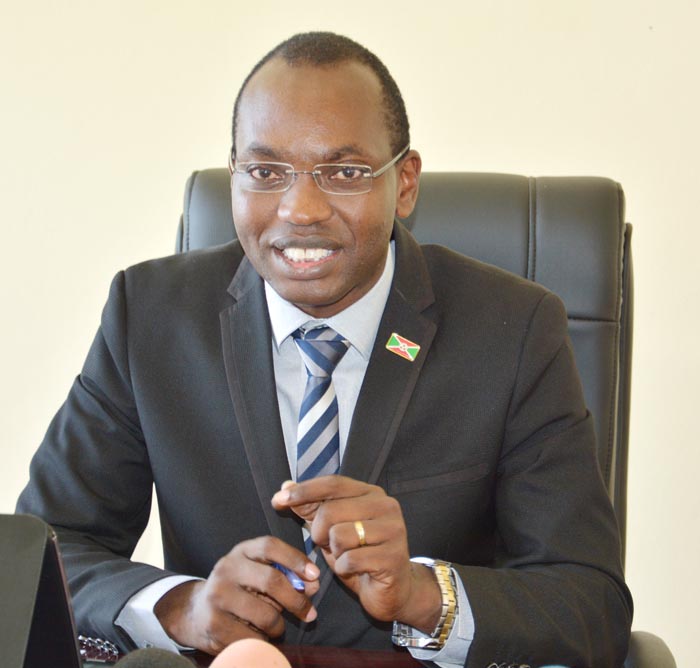
Willy Nyamitwe: “there will never be any negotiations with those who are charged with insurrection. For them, there are other solutions than to catch them and bring them to justice.” @iwacu
The Burundian government doesn’t intend to engage in talks with opposition leaders and civil society charged with insurrection. However, according to an AFP report, the principal advisor to the President of the Republic in charge of communication, Willy Nyamitwe says that the Government of Burundi is completely agreement with the proposal of the Conference of Catholic Bishops of Burundi to enter into a dialogue.
“But there will never be any negotiations with those who are charged with insurrection and want to bring our country into chaos and war. For them, there are other solutions than to catch them and bring them to justice.”
Bujumbura excludes any discussion with the CNARED, anti-third term coalition of –mostly exiled- leaders of the opposition and Burundian civil society.
“CNARED is not recognized by law and its leaders have promised to fire and sword the country. CNARED will not be invited to the dialogue,” says Willy Nyamitwe. He announced that the dialogue will begin very soon.
At that time, the arrest warrants against the organizers of the insurrection and perpetrators of the coup fled abroad were issued via Interpol. The announcement was made last Thursday by the Attorney General of the Republic, Valentin Bagorikunda, when he released a report of a Commission of Inquiry.
Mediation between the government and those opposing the third mandate, under the auspices of the head of state Yoweri Museveni of Uganda, former president of the Regional Peace Initiative for Burundi, did not last long and did not yield any results.
Establishment of CNDI
Burundian President Pierre Nkurunziza signed a decree on Wednesday 23 September 2015, creating the National Commission for inter- Burundian dialogue. It will be placed under the authority of the presidency. The commission is mandated to drive the process of inter- Burundian dialogue in the country at all levels.
The recommendations from the discussions will be submitted to the Government, political parties, civil society and religious denominations. This commission will be composed of 15 members’ of Burundian nationality appointed by decree in accordance with the constitutional balances.
—————————————————————————————————————————————–
Reactions
François Bizimana: “Given the current crisis, we need a mediator”
The CNDD-FDD is ready for dialogue with all political actors, without mediator and insurgents in the country. For the Rwasa side, there is agreement between all the protagonists of the current crisis on certain prerequisites. These include on the agenda of the talks, the question of the presence or absence of a mediator and venue that can accommodate these meetings.
For there to be a frank dialogue, says the spokesman of the coalition “Amizero y’Abarundi”, one must first define the issues to be discussed, stakeholders in these talks, a venue acceptable to all actors and an idea of the expected results.
When all stakeholders agree on the need for dialogue, he points out, is that there are problems. For there to be lasting solutions, he insists, then, they must be agreed and circumscribed the agenda.
After studying all the contours of these issues to the agenda, he says, this is where we must agree on the need or not to use a mediator.
“If all parties agree to conduct this dialogue in the country and if they believe that a solution can be found, great; but if all the players feel that we need a mediator, it is then necessary to find him. He can be Burundian or not, “notes François Bizimana.
But given that the crisis happened in Burundi and is still not resolved, it would be better to seek a mediator form outside of the country.
According to the Coalition spokesman ‘ Amizero y’Abarundi ‘ , we must make an examination of conscience and see if the desired dialogue and the expected results are not likely to be distorted by a poorly defined calendar, poorly chosen actors or poor assessment of the situation. “We should not fool ourselves and indulge in getting around the table dodging the real issues and diverted the true protagonists “advises Bizimana.
Charles Nditije: “It is the regime of Pierre Nkurunziza which is perpetrator of coup.”
“I am convinced that Pierre Nkurunziza will eventually negotiate, otherwise he is signing his own political death. The regime of Pierre Nkurunziza became autistic. He seems to completely ignore reality. They say that if they are negotiating, it would be an admission of weakness. So they shut themselves up in their shells by ignoring everything and say they will not negotiate. But they will find themselves suffocated economically and politically and isolated diplomatically. And when they will wake up, they will be forced to negotiate from a weak position.”
Although he does not recognize the current regime, Charles Nditije acknowledges that he will negotiate. “We do not recognize the elections or the regime resulting from it. But there is a de facto government. We cannot ignore Nkurunziza and the CNDD-FDD, and people who are with them in institutions.”
Conference of Catholic Bishops: “Engage in an inclusive dialogue”
The bishops called on all Burundian political actors to engage in a dialogue. Their message was delivered on Sunday 20 September in all the Catholic churches of Burundi.
The Catholic Bishops’ Conference calls on all parties in disagreement: “to say that there is a climate of misunderstanding in the country and to agree to come together and engage in dialogue so that poverty and insecurity that are noticeable can be terminated.”
The bishops call on the conflicting parties to find a mediator. They invite people in power and those who seek to conquer it to a genuine and inclusive dialogue. They remind them that the search for the good for all must be their constant concern. “Knowing all the evils of war, we implore those who threaten to clash to reject the use of force and violence, and engage in an inclusive dialogue involving both those who are inside and those outside the country, without exception,” they insisted.

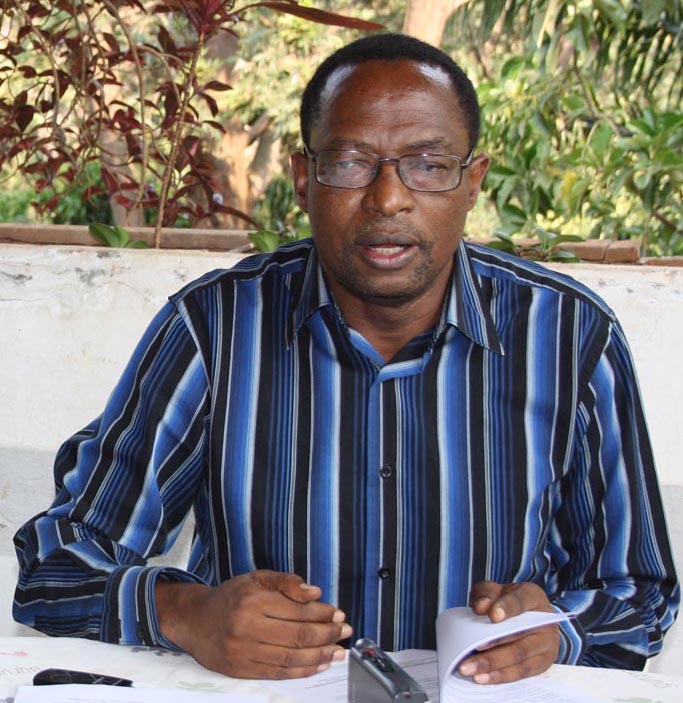
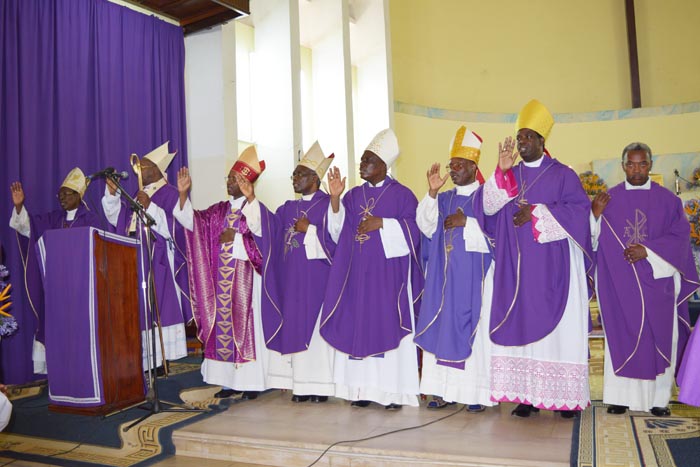
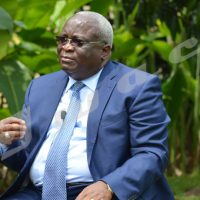
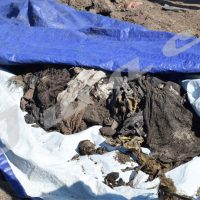
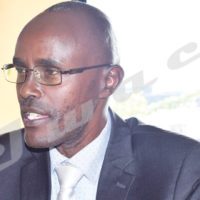
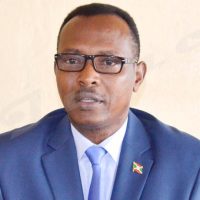
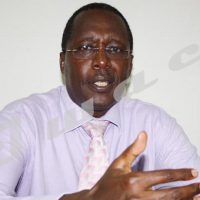













 IWACU Open Data
IWACU Open Data

